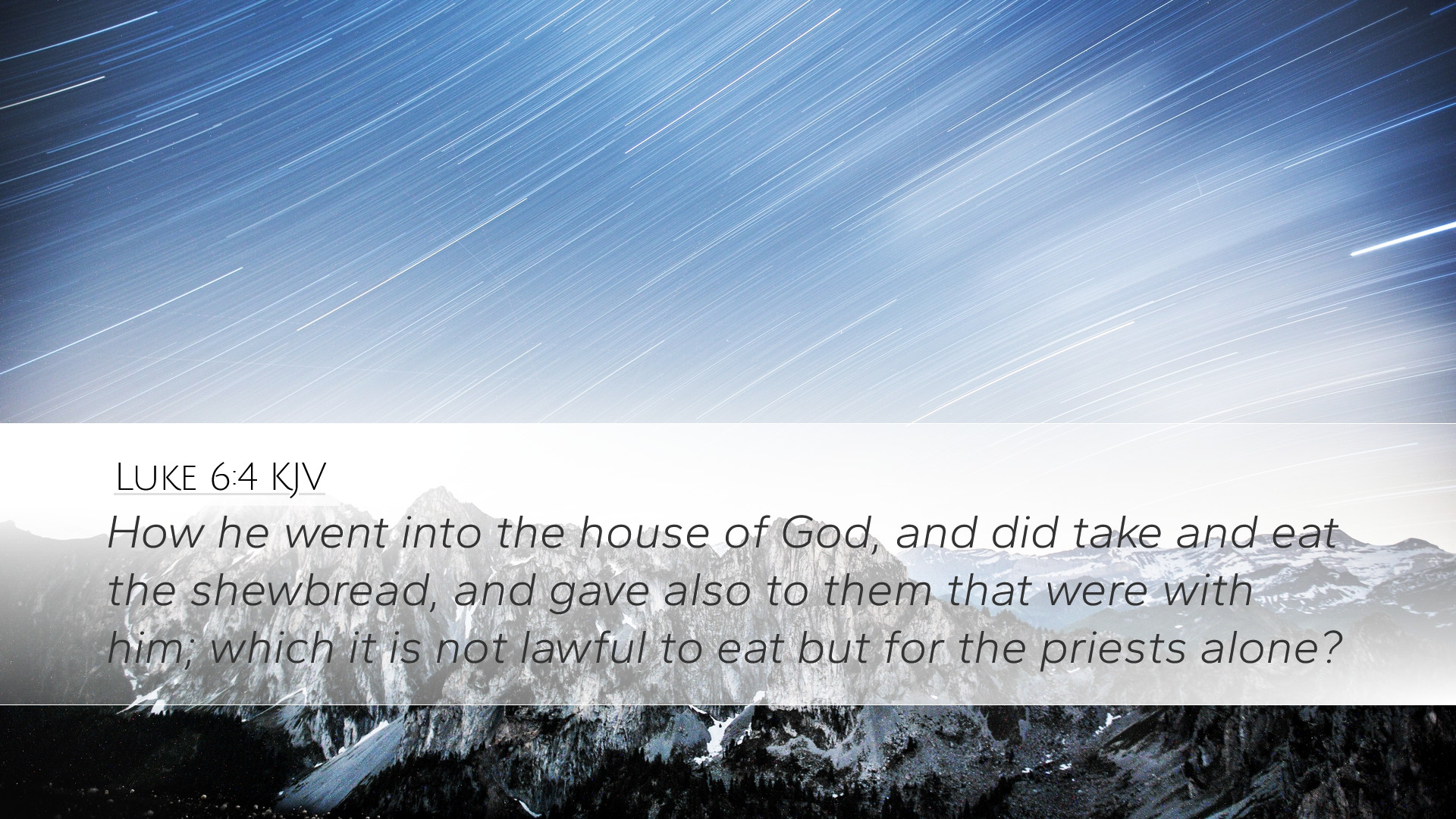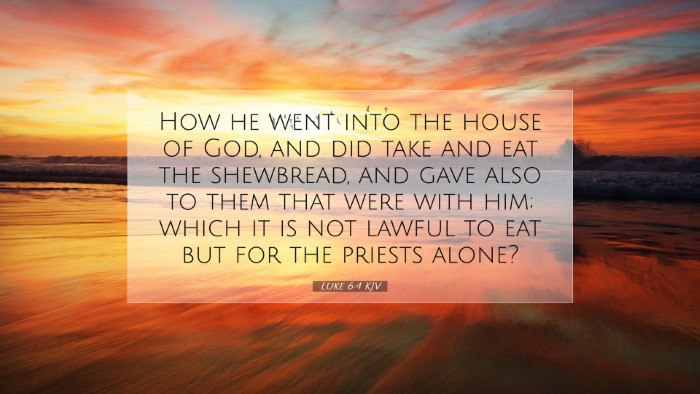Commentary on Luke 6:4
Verse: "How he went into the house of God, and did take and eat the shewbread, and gave also to them that were with him; which is not lawful to eat but for the priests alone?" (Luke 6:4)
Introduction
This verse finds its context within a broader discussion regarding the nature of the Sabbath and the proper observance of religious laws. Jesus refers to an episode involving David, which not only illustrates His understanding of the law but also His authority to interpret it. The insights gleaned from this passage provide valuable lessons for theological reflection and practical application in pastoral ministry.
Contextual Understanding
To appreciate the significance of this verse, it is crucial to consider its contextual placement within Luke 6. The preceding sections detail Jesus’ growing popularity amidst His radical teachings and miraculous works, contrasted sharply with the rigid adherence to tradition exhibited by the Pharisees.
David and the Shewbread
In the reference Jesus makes to David (1 Samuel 21:1-6), we find that he, while fleeing from Saul, sought sustenance from the priest Ahimelech at Nob. The shewbread, which was consecrated for the priests, was shared with David and his companions, highlighting the usage of sacred provisions under extraordinary circumstances.
Theological Implications
This incident shows a profound principle: mercy over sacrifice. Jesus, in citing this instance, emphasizes that the welfare of human beings outweighs ceremonial law.
Matthew Henry’s Insights
Matthew Henry notes that Christ points to David's case as an illustration of divine mercy and necessity overcoming ritualistic law. He asserts that the act of feeding his followers with the shewbread stands as a testament to the spirit of the law rather than its letter.
Albert Barnes’ Reflections
Barnes stresses that Jesus is teaching that the law should never become a hindrance to human need. His commentary elaborates that this episode with David’s action serves as a previous example validating Jesus' claims regarding the Sabbath.
Adam Clarke’s Commentary
Clarke highlights the conflicting attitude of the Pharisees, illustrating their misinterpretation of divinely instituted practices. He clarifies that the Scriptures are not mere regulations but are meant to govern the heart and spirit. Clarke argues that Jesus’ mention of David demonstrates that God's will appreciates human circumstance, thus laying a foundation for understanding divinity in practical terms.
Application for Clergy and Scholars
This passage calls upon pastors and theologians to grapple with the essence of their faith in relation to rigid ecclesiastical traditions. Here are key takeaways:
- Understanding Law and Grace: The juxtaposition of law versus grace must be a continual theme within pastoral teachings. The need for compassion to take precedence over ritual is paramount in building a community of faith.
- Human Need as Priority: Assisting congregants in crises should beckon leaders to reflect on their approaches to law and tradition. Emphasizing love, mercy, and humanity are essential.
- Historical Context in Teaching: Emulating Jesus’ method of teaching through narrative is valuable. Historical examples can underline theological points and enrich sermons.
Conclusion
Luke 6:4 serves as a reminder that true adherence to God’s law transcends mere compliance with religious practices; it calls for a heart aligned with God's compassion. For pastors, students of theology, and scholars alike, the core message is clear: love must guide the interpretation and practice of faith.


